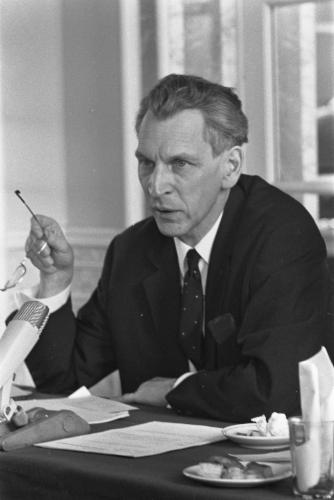Hymnus für Sopran und grosses Orchester op. 67
By Marius Flothuis
Details
Words by Ingeborg Bachmann ‘An die Sonne’
Program note: (Première: 16-10-1974 - Concertgebouw, Amsterdam - Erna Spoorenberg with the Concertgebouworkest, Bernard Haitink, conducting) - Exactly one year prior to the first performance of my Hymnus, on October 17, 1973, the Austrian poet Ingeborg Bachmann died in Rome, reaching the age of 47. The first distinction which she received was from 'Gruppe 47 '; many would follow. She studied law and philosophy and received her doctorate in 1950, on a thesis, entitled 'critical Aufnahme of the Existentialphilosophie Martin Heideggers '. Ingeborg Bachmann excels as a 'musical' poet, in that sense; her poetry can carry music and also incite music. She is also one of the few able to write texts which are explicitly intended for musical versions (she wrote opera libretti and other texts for Hans Werner Henze). It is that attribute that I used - when the then minister of Arts and Sciences commissioned me in 1964 to write a work for voice and orchestra - I searched through the oeuvre of this poet and found what I needed. I have tried to catch the continuously changing kaleidoscopic, the glittering of the poem "An die Sonne" in the very differentiated orchestration. - MARIUS FLOTHUIS
Amsterdam


